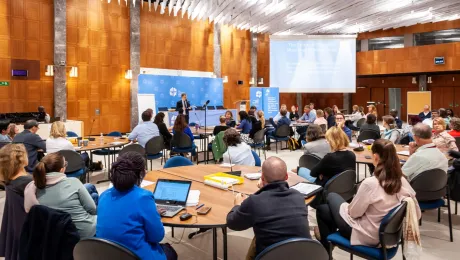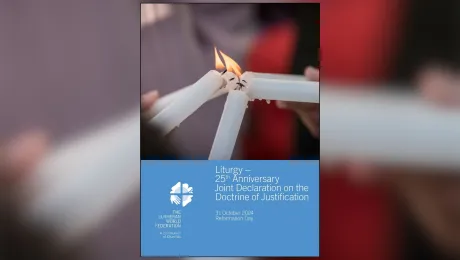Why are the ideas that sparked the Reformation in the 16th century relevant and vital for the life of our churches today?
As a global communion of Lutheran member churches and World Service country programs, we celebrated the 500thanniversary of the Reformation in 2017. Together with our Catholic sisters and brothers, we rejoiced in the gifts of renewal that the Reformers brought into the life and mission of the church. Together, we asked forgiveness for the suffering and divisions that followed in the wake of that renewal movement. Together, we pledged ourselves to the urgent tasks of reconciliation, service and shared Christian witness to the world.
In marking that anniversary, we affirmed three key principles which shape our work for the coming years:
- the Reformation is a global citizen
- the Reformation requires ecumenical accountability
- the Reformation is ongoing
Here, you can find resources and sharable materials exploring ways in which we seek to put those principles into practice in our diverse cultures and contexts.

The Salvadoran cross painted for the joint ecumenical commemoration in Lund, Sweden will be at the center of the commemoration service in Namibia as well. Photo: Magnus Aronson/Ikon
Reformation Day
As Lutherans, each year, we mark Reformation Day on 31 October, recalling the day when German theologian Martin Luther began his movement for renewal in the Christian church.
Here you can find multi-lingual worship material and other online resources that can be freely downloaded and shared among individuals and congregations to help churches pray and reflect together on the meaning of Ongoing Reformation in our contemporary contexts.

Bible Year
September 2022 marks the 500th anniversary of one of Martin Luther’s most important literary achievements: the publication of his German translation of the New Testament, popularly known as his ‘September Testament’.
For Luther and the other Reformers, making the Bible accessible to people in their own language underscored their core theological convictions: that Jesus is the Word of God and that through preaching the gospel, all people and all generations are invited into an encounter with God’s living Word.
To mark this anniversary, the LWF is offering a wealth of resources, including publications, online worship and Bible studies, interviews and social media campaigns.
This autumn, we are hosting a series of webinars exploring the impact of Luther’s ‘September Testament’ and the ways in which Lutherans read and engage with the scriptures in countries around the globe today.








